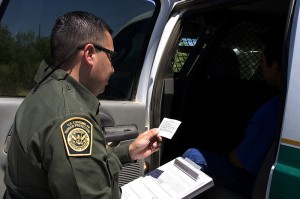What is the Right to Remain Silent?
 It seems like every cop movie or TV show with detectives solving a crime has a scene where an officer says, “you have the right to remain silent” to a criminal he is arresting. This is one of the Miranda rights that must be explicitly stated to an arrested person for their statements to be admissible in court. But what does this line actually mean and how does it apply to a DUI arrest?
It seems like every cop movie or TV show with detectives solving a crime has a scene where an officer says, “you have the right to remain silent” to a criminal he is arresting. This is one of the Miranda rights that must be explicitly stated to an arrested person for their statements to be admissible in court. But what does this line actually mean and how does it apply to a DUI arrest?
In the United States, this right is closely linked to the Fifth Amendment of the Constitution, which guarantees certain rights pertaining to a fair trial, specifically where it says, “No person… shall be compelled in any criminal case to be a witness against himself,” which means that you cannot be forced to testify or admit your own guilt. This is why, in those same films and shows, you often hear defendants say, “I plead the fifth” in order to maintain their legal right to be silent.
One note-worthy update occurred in June 2013, when the Supreme Court ruled in the case of Salinas v. Texas that staying silent during questioning could be taken as a sign of guilt if the person had previously been answering all questions normally. In order to avoid answering a question, you must invoke your Fifth Amendment right.
Right to an Attorney
One of the other Miranda rights is the right to legal counsel. No person is allowed to be interrogated by the police before speaking with an attorney, unless he or she waives the right. This is included under the Sixth Amendment.
If you are arrested for a DUI (or other charge), make sure you ask to speak to an attorney before answering any questions. Regardless if you are guilty or innocent, saying the wrong thing could have negative consequences.
Remember, calling a DUI lawyer is not an admission of guilt, but one of your Constitutional Rights based on the belief of “innocent until proven guilty.”

